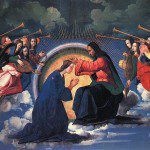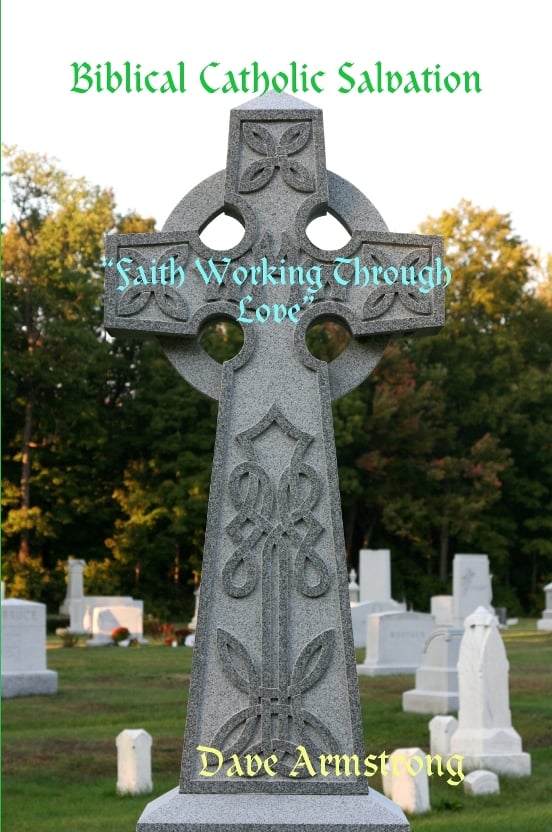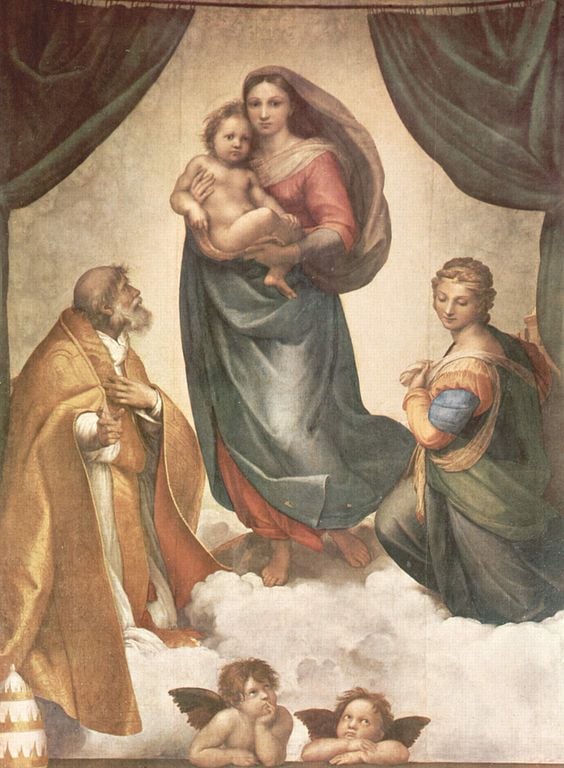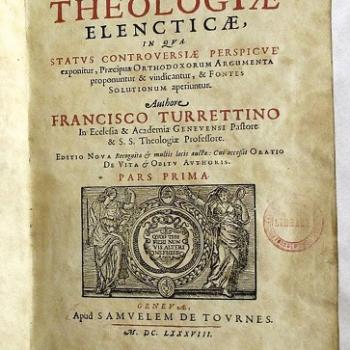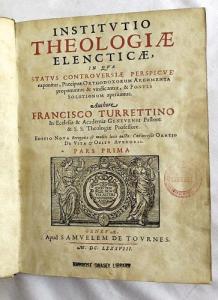
Chapter 11 of my book, Orthodoxy and Catholicism: A Comparison (July 2004 / 3rd revised edition July 2015, 335p), co-authored with Fr. Deacon Daniel Dozier (Byzantine Catholic), pp. 275-302.
***
In Chapter Five, I briefly alluded to the fact that theosis (profound union with God) is just as much a part of Western tradition as it is in the Eastern tradition (yet it is often oddly claimed that this is not the case at all). I cited just one of St. John of the Cross’ many statements concerning this wonderful teaching of Catholic and Orthodox spirituality, and also related ones from St. Thomas Aquinas. The Catechism of the Catholic Church makes reference to it:
460 The Word became flesh to make us “partakers of the divine nature”(2 Pet 1:4): “For this is why the Word became man, and the Son of God became the Son of man: so that man, by entering into communion with the Word and thus receiving divine sonship, might become a son of God” (Irenaeus) . . . “The only-begotten Son of God, wanting to make us sharers in his divinity, assumed our nature, so that he, made man, might make men gods” (Athanasius).
1996 Our justification come from the grace of God. Grace is favor, the free and undeserved help that God gives us to respond to his call to become children of God, adoptive sons, partakers of the divine nature and of eternal life.
2009 Filial adoption, in making us partakers by grace in the divine nature, can bestow true merit on us as a result of God’s gratuitous justice. This is our right by grace, the full right of love, making us “co-heirs” with Christ and worthy of obtaining “the promised inheritance of eternal life” (Council of Trent). The merits of our good works are gifts of the divine goodness. “Grace has gone before us; now we are given what is due…Our merits are God’s gifts” (Augustine).
Presently, I shall cite St. Augustine on the topic, and fourteen Catholic mystics (whose notable utterances I recently compiled in my book, Quotable Catholic Mystics and Contemplatives).
For this thing God does, out of sons of men He makes sons of God: because out of Son of God He has made Son of Man. See what this participation is: there has been promised to us a participation of Divinity: . . . For the Son of God has been made partaker of mortality, in order that mortal man may be made partaker of divinity. . . . He that to you has promised divinity, shows in you love. (Explanations of the Psalms, 53:3 [53, 5] )
Let human voices be hushed, human thoughts still: let them not stretch themselves out to incomprehensible things, as though they could comprehend them, but as though they were to partake of them, for partakers we shall be….Partakers then we shall be: let none doubt it: Scripture says it. And of what shall we be partakers, as though these were parts in God, as though God were divided into parts? Who then can explain how many become partakers of one single substance? . . . it is good that he confess weakness, who desires to attain to the divine nature. (Explanations of the Psalms, 147:5 [147, 9] )
And the Son of God came and was made the Son of man, that He might re-create us after the image of God . . . (On the Trinity, iv, 4, 7)
[W]e should love that One who, without sin, died in the flesh for us; and by believing in Him now raised again, and by rising again with Him in the spirit through faith, that we should be justified by being made one in the one righteous One; and that we should not despair of our own resurrection in the flesh itself, when we consider that the one Head had gone before us the many members; in whom, being now cleansed through faith, and then renewed by sight, and through Him as mediator reconciled to God, we are to cleave to the One, to feast upon the One, to continue one. (On the Trinity, iv, 7, 11)
For there is but one Son of God by nature, who in His compassion became Son of man for our sakes, that we, by nature sons of men, might by grace become through Him sons of God. For He, abiding unchangeable, took upon Him our nature, that thereby He might take us to Himself; and, holding fast His own divinity, He became partaker of our infirmity, that we, being changed into some better thing, might, by participating in His righteousness and immortality, lose our own properties of sin and mortality, and preserve whatever good quality He had implanted in our nature perfected now by sharing in the goodness of His nature. For as by the sin of one man we have fallen into a misery so deplorable, so by the righteousness of one Man, who also is God, shall we come to a blessedness inconceivably exalted. (City of God, xxi, 15)
[T]he Mediator between God and men, the man Christ Jesus, who became a partaker of our mortality that He might make us partakers of His divinity. (City of God, xxi, 16)
O pure and holy love! most sweet and blessed affection! O complete submission of a disinterested soul; most perfect in that there is no thought of self; most sweet and tender in that the soul’s whole feeling is divine! To attain to this, is for the soul to be deified; as a small drop of water appears lost if mixed with wine, taking its taste and colour; and as, when plunged into a furnace, a bar of iron seems to lose its nature and assume that of fire; or as the air filled with the sun’s beams seems rather to become light than to be illuminated. So it is with the natural life of the Saints; they seem to melt and pass away into the will of God. For if anything merely human remained in man, how then should God be all in all? It is not that human nature will be destroyed, but that it will attain another beauty, a higher power and glory. (St. Bernard of Clairvaux, On the Love of God, ch. 10)
He who with full face looks to this propitiatory by looking upon Him suspended on the cross in faith, hope, and charity, in devotion, wonder, exultation, appreciation, praise, and jubilation, makes a passover – that is, the phase or passage [Exod. 12:11] with Him – that he may pass over the Red Sea by the staff of the cross from Egypt into the Desert, where he may taste the hidden manna . . . In this passage, if it is perfect, all intellectual operations should be abandoned, and the whole height of our affection should be transferred and transformed into God. This, however, is mystical and most secret, which no man knoweth but he that hath received it [Apoc. 2:17], nor does he receive it unless he desire it; nor does he desire it unless the fire of the Holy Spirit, Whom Christ sent to earth, has inflamed his marrow. And therefore the Apostle says that this mystic wisdom is revealed through the Holy Spirit. . . . If you should ask how these things come about, question grace, not instruction; desire, not intellect; the cry of prayer, not pursuit of study; the spouse, not the teacher; God, not man; darkness, not clarity; not light, but the wholly flaming fire which will bear you aloft to God with fullest unction and burning affection. This fire is God, and the furnace of this fire leadeth to Jerusalem; and Christ the man kindles it in the fervor of His burning Passion, . . . (St. Bonaventure, The Mind’s Road to God, ch. 7)
[W]e are taken possession of by the Holy Ghost, and we take possession of the Holy Ghost and the Father and the Son, and the whole Divine Nature: for God cannot be divided. . . . In that very moment in which man turns away from sin, he is received by God in the essential unity of his own being, at the summit of his spirit, that he may rest in God, now and evermore. And he also receives grace, and likeness unto God, in the proper source of his powers, that he may evermore grow and increase in new virtues. . . . For whosoever lives without sin, he lives in likeness unto God, and in grace, and God is his own. (Bl. John of Ruysbroeck, The Adornment of the Spiritual Marriage, Bk. II, ch. 59-60)
[S]ince the spirit is now like unto God, and means and loves God alone above all gifts, it will no longer be satisfied by likeness, nor by a created brightness; . . . the spirit is enkindled into fruition, and it melts into God as into its eternal rest; for the grace of God is to God even as the sunshine is to the sun, and the grace of God is the means and the way which leads us to God. And for this reason it shines within us in simplicity, and makes us deiform, that is, like unto God. And this likeness perpetually merges itself in God, and dies in God, and becomes one with God, and remains one, for charity makes us one with God, and causes us to remain one and to dwell in the One. (Bl. John of Ruysbroeck, The Adornment of the Spiritual Marriage, Bk. II, ch. 63)
[S]uch enlightened men are, with a free spirit, lifted up above reason into a bare and imageless vision, wherein lives the eternal indrawing summons of the Divine Unity; and, with an imageless and bare understanding, they pass through all works, and all exercises, and all things, until they reach the summit of their spirits. There, their bare understanding is drenched through by the Eternal Brightness, even as the air is drenched through by the sunshine. . . . the created image is united above reason in a threefold way with its Eternal Image, which is the origin of its being and its life; and this origin is preserved and possessed, essentially and eternally, through a simple seeing in an imageless void: and so a man is lifted up above reason in a threefold manner into the Unity, and in a onefold manner into the Trinity. Yet the creature does not become God, for the union takes place in God through grace and our homeward-turning love: and therefore the creature in its inward contemplation feels a distinction and an otherness between itself and God. (Bl. John of Ruysbroeck, The Book of Supreme Truth, ch. 11)
[T]he more disengaged and abstracted the self-egression of such souls is, the more free will be their soaring exaltation; and the more free their exaltation, the deeper will be their penetration into the vast wilderness and unfathomable abyss of the unknown Godhead, wherein they are immersed, overflowed, and blended up, so that they desire to have no other will than God’s will, and that they become the very same that God is: in other words, that they be made blessed by grace as He is by nature. (Bl. Henry Suso, A Little Book of Eternal Wisdom, Pt. I, ch. 12)
For the annihilation of the spirit, its passing away into the simple Godhead, and all its nobility and perfection, are not to be regarded as a transformation of man’s created essence into God, in virtue of which all that he is is God, only that he does not perceive it through his grossness, or, in other words, that he has become God, and his own essence is annihilated; but they are to be understood of a going out of self, and a contempt for self, such as has been described. And thus it is that the spirit of a man is taken out of itself and passes away duly and rightfully, and then for the first time it is well with him. For God has now become all things to him, and all things have become, as it were, God to him; for all things present themselves to him now in the manner in which they are in God, and yet they all remain each one what it is in its own natural essence. (Bl. Henry Suso, The Life of Blessed Henry Suso by Himself, ch. 52)
In this merging of itself in God the spirit passes away, and yet not wholly; for it receives indeed some attributes of the Godhead, but it does not become God by nature. . . . it is unclothed of all created modes, though without ceasing to retain its own proper mode of existence as a creature. (Bl. Henry Suso, The Life of Blessed Henry Suso by Himself, ch. 56)
This entry of the spirit into God strips it of all images, forms, and multiplicity, and it loses consciousness of itself and all things, and Becomes merged with, the three Persons in the abyss of their indwelling simplicity, and enjoys there its highest and truest bliss. Here all striving and seeking cease, for the beginning and the end have become one, and the spirit, being divested of itself, has become one with them, . . . (Bl. Henry Suso, The Life of Blessed Henry Suso by Himself, ch. 57)
If a man could only once in his life thus turn to God, it would be well for him. Those men whose God is so powerful, and Who has been so faithful to them in all their distress, will be answered by God with Himself. He draws them so mysteriously unto Himself and His own blessedness; their spirits are so lovingly attracted, while they are at the same time so filled and transfused with the Godhead, that they lose all their diversity in the Unity of the Godhead. These are they to whom God makes their work here on earth a delight; so that they have a real foretaste of that which they will enjoy for ever. (Johannes Tauler, The Inner Way, Sermon 10)
This prayer is the entrance into union of the created spirit with the uncreated Spirit of God, and is the result of a design formed by the Holy Godhead throughout eternity. These men are the true worshippers of God, who worship God the Father in spirit and in truth. . . . All has been poured forth into God and has become one spirit with God; as St Paul says: “He who is joined to the Lord is one spirit.” [1 Cor 6:17] What that is and how it comes to pass, it is easier to experience than to describe. All that has been said of it is as poor and unlike it as the point of a needle is to the heavens above. (Johannes Tauler, The Inner Way, Sermon 36)
The third sort, which is as perfect Contemplation as can be had in this life, consisteth both in knowing and affecting; that is, in knowing and perfect loving of God, which is when a man’s soul is first reformed by perfection of virtues to the image of Jesus, and afterwards, when it pleaseth God to visit him, he is taken in from all earthly and fleshly affections, from vain thoughts and imaginings of all bodily creatures, and, as it were, much ravished and taken up from his bodily senses, and then by the grace of the Holy Ghost is enlightened, to see by his understanding Truth itself (which is God) and spiritual things, with a soft, sweet, burning love in God, so perfectly that he becometh ravished with His love, and so the soul for the time is become one with God, and conformed to the image of the Trinity. The beginning of this Contemplation may be felt in this life, but the full perfection of it is reserved unto the bliss in heaven. Of this union and conforming to our Lord speaks St Paul thus: Qui adhaeret Deo unus spiritus est cum eo; [1 Cor. 6:17]. that is to say, he who by ravishing of love is become united to God, God and that soul are not now two, but both one. (Walter Hilton, The Scale [or, Ladder] of Perfection, Bk. I, Pt. I, ch. 8)
Highly ought we to rejoice that God dwelleth in our soul, and much more highly ought we to rejoice that our soul dwelleth in God. Our soul is made to be God’s dwelling-place; and the dwelling-place of the soul is God, Which is unmade. And high understanding it is, inwardly to see and know that God, which is our Maker, dwelleth in our soul; and an higher understanding it is, inwardly to see and to know that our soul, that is made, dwelleth in God’s Substance: of which Substance, God, we are that we are. And I saw no difference between God and our Substance: but as it were all God; and yet mine understanding took that our Substance is in God: that is to say, that God is God, and our Substance is a creature in God. For the Almighty Truth of the Trinity is our Father: for He made us and keepeth us in Him; . . . the high Goodness of the Trinity is our Lord, and in Him we are enclosed, and He in us. We are enclosed in the Father, and we are enclosed in the Son, and we are enclosed in the Holy Ghost. And the Father is enclosed in us, and the Son is enclosed in us, and the Holy Ghost is enclosed in us: Almightiness, All-Wisdom, All-Goodness: one God, one Lord. And our faith is a Virtue that cometh of our Nature-Substance into our Sense-soul by the Holy Ghost; in which all our virtues come to us: for without that, no man may receive virtue. For it is nought else but a right understanding, with true belief, and sure trust, of our Being: that we are in God, and God in us, Whom we see not. (Julian of Norwich, Revelations of Divine Love, ch. 54)
Oh, abyss of love! What heart can help breaking when it sees such dignity as Yours descend to such lowliness as our humanity? We are Your image, and You have become ours, by this union which You have accomplished with man, veiling the Eternal Deity with the cloud of woe, and the corrupted clay of Adam. For what reason?—Love. Wherefore, You, O God, have become man, and man has become God. (St. Catherine of Siena, The Dialogue, “A Treatise of Discretion”)
[B]y following His doctrine with the affection of love, you are united with Him, and, being united with Him, you are united with Me, because We are one thing together. And so it is that I manifest Myself to you, because We are one and the same thing together. (St. Catherine of Siena, The Dialogue, “A Treatise of Discretion”)
Above thyself thou art: for why, thou attainest to come thither by grace, whither thou mayest not come by nature. That is to say, to be united to God, in spirit, and in love, and in accordance of will. Beneath thy God thou art: for why, although it may be said in manner, that in this time God and thou be not two but one in spirit—insomuch that thou or another, for such onehead that feeleth the perfection of this work, may soothfastly by witness of Scripture be called a God—nevertheless yet thou art beneath Him. For why, He is God by nature without beginning; . . . only by His mercy without thy desert are made a God in grace, united with Him in spirit without departing, both here and in bliss of heaven without any end. So that, although thou be all one with Him in grace, yet thou art full far beneath Him in nature. (The Cloud of Unknowing: ch. 67)
Wherefore God took human nature or manhood upon Himself and was made man, and man was made divine. (Theologia Germanica, ch. 3)
Behold! albeit no man may be so single and perfect in this obedience as Christ was, yet it is possible to every man to approach so near thereunto as to be rightly called Godlike, and “a partaker of the divine nature.” [2 Pet 1:4] And the nearer a man cometh thereunto, and the more Godlike and divine he becometh, the more he hateth all disobedience, sin, evil and unrighteousness, and the worse they grieve him. (Theologia Germanica, ch. 16)
Let Your presence wholly inflame me, consume and transform me into Yourself, that I may become one spirit with You by the grace of inward union and by the melting power of Your ardent love. (Thomas à Kempis, The Imitation of Christ, Bk. IV, ch. 16)
A heart which finds itself in God sees all created things beneath itself, not through pride or conceit of self, but by reason of its union with God, which makes all that is God’s appear to be its own, and beside him it sees, knows, and comprehends nothing. (St. Catherine of Genoa, Spiritual Dialogue, Pt. III, ch. 8)
God receives her into himself, where she is transformed by his burning love, and thus transformed remains in him forever. (St. Catherine of Genoa, Spiritual Dialogue, Pt. III, ch. 13)
I behold such a great conformity between God and the soul, that when he finds her pure as when his divine majesty first created her he gives her an attractive force of ardent love which would annihilate her if she were not immortal. He so transforms her into himself that, forgetting all, she no longer sees aught beside him; and he continues to draw her toward him, inflames her with love, and never leaves her until he has brought her to that state from whence she first came forth, that is, to the perfect purity in which she was created. . . . And when this is accomplished, she rests wholly in God. Nothing of herself remains, and God is her entire being. (St. Catherine of Genoa, Treatise on Purgatory, ch. 9-10)
[T]he soul . . . is inflamed with so burning a desire to be transformed into God, that in it she finds her purgatory. Not, indeed, that she regards her purgatory as being such, but this desire, so fiery and so powerfully repressed, becomes her purgatory. (St. Catherine of Genoa, Treatise on Purgatory, ch. 11)
How this, which we call union, is effected, and what it is, I cannot tell. Mystical theology explains it, and I do not know the terms of that science; nor can I understand what the mind is, nor how it differs from the soul or the spirit either: all three seem to me but one; though I do know that the soul sometimes leaps forth out of itself, like a fire that is burning and is become a flame; and occasionally this fire increases violently—the flame ascends high above the fire; but it is not therefore a different thing: it is still the same flame of the same fire. . . . What I undertake to explain is that which the soul feels when it is in the divine union. It is plain enough what union is—two distinct things becoming one. . . . one moment is enough to repay all the possible trials of this life. The soul, while thus seeking after God, is conscious, with a joy excessive and sweet, that it is, as it were, utterly fainting away in a kind of trance: breathing, and all the bodily strength, fail it, so that it cannot even move the hands without great pain; the eyes close involuntarily, and if they are open, they are as if they saw nothing; nor is reading possible,—the very letters seem strange, and cannot be distinguished,—the letters, indeed, are visible, but, as the understanding furnishes no help, all reading is impracticable, though seriously attempted. The ear hears; but what is heard is not comprehended. The senses are of no use whatever, except to hinder the soul’s fruition; and so they rather hurt it. It is useless to try to speak, because it is not possible to conceive a word; nor, if it were conceived, is there strength sufficient to utter it; for all bodily strength vanishes, and that of the soul increases, to enable it the better to have the fruition of its joy. Great and most perceptible, also, is the outward joy now felt. . . . Let us now come to that which the soul feels interiorly. Let him describe it who knows it; for as it is impossible to understand it, much more is it so to describe it. When I purposed to write this, I had just communicated, and had risen from the very prayer of which I am speaking. I am thinking of what the soul was then doing. Our Lord said to me: It undoes itself utterly, My daughter, in order that it may give itself more and more to Me: it is not itself that then lives, it is I. As it cannot comprehend what it understands, it understands by not understanding. He who has had experience of this will understand it in some measure, for it cannot be more clearly described, because what then takes place is so obscure. All I am able to say is, that the soul is represented as being close to God; and that there abides a conviction thereof so certain and strong, that it cannot possibly help believing so. (St. Teresa of Ávila, Autobiography, ch. 18)
One day, in prayer, I felt my soul in God in such a way that it seemed to me as if the world did not exist, I was so absorbed in Him. (St. Teresa of Ávila, Autobiography, Relation 9)
[I]f this is genuine union with God, the devil cannot interfere nor do any harm, for His Majesty is so joined and united with the essence of the soul, that the evil one dare not approach, nor can he even understand this mystery. This is certain, for it is said that the devil does not know our thoughts, much less can he penetrate a secret so profound that God does not reveal it even to us. . . . These heavenly consolations are above all earthly joys, pleasure, and satisfaction. As great a difference exists between their origin and that of worldly pleasures as between their opposite effects, as you know by experience. . . . If we did not see it, how can we feel so sure of it? That I do not know: it is the work of the Almighty and I am certain that what I say is the fact. I maintain that a soul which does not feel this assurance has not been united to God entirely, . . . (St. Teresa of Ávila, The Interior Castle, Pt. V, ch. 1)
So mysterious is the secret and so sublime the favour that God thus bestows instantaneously on the soul, that it feels a supreme delight, only to be described by saying that our Lord vouchsafes for the moment to reveal to it His own heavenly glory in a far more subtle way than by any vision or spiritual delight. As far as can be understood, the soul, I mean the spirit of this soul, is made one with God Who is Himself a spirit, and Who has been pleased to show certain persons how far His love for us extends in order that we may praise His greatness. He has thus deigned to unite Himself to His creature: He has bound Himself to her as firmly as two human beings are joined in wedlock and will never separate Himself from her. . . . Perhaps when St. Paul said, ‘He who is joined to the Lord is one spirit,’ [1 Cor 6:17] he meant this sovereign marriage, which presupposes His Majesty’s having been joined to the soul by union. (St. Teresa of Ávila, The Interior Castle, Pt. VII, ch. 2)
[D]oubtless by its becoming one with the Almighty, by this sovereign union of spirit with spirit, the soul must gather strength, as we know the saints did, to suffer and to die. (St. Teresa of Ávila, The Interior Castle, Pt. VII, ch. 4)
[I]n order to reach the summit of this high mount, it must have changed its garments, which, through its observance of the first two things, God will change for it, from old to new, by giving it a new understanding of God in God, the old human understanding being cast aside; and a new love of God in God, the will being now stripped of all its old desires and human pleasures, and the soul being brought into a new state of knowledge and profound delight, all other old images and forms of knowledge having been cast away, and all that belongs to the old man, which is the aptitude of the natural self, quelled, and the soul clothed with a new supernatural aptitude with respect to all its faculties. So that its operation, which before was human, has become Divine, which is that that is attained in the state of union, wherein the soul becomes naught else than an altar whereon God is adored in praise and love, and God alone is upon it. (St. John of the Cross, Ascent of Mount Carmel, Bk. I, ch. 5)
In thus allowing God to work in it, the soul (having rid itself of every mist and stain of the creatures, which consists in having its will perfectly united with that of God, for to love is to labour to detach and strip itself for God’s sake of all that is not God) is at once illumined and transformed in God, and God communicates to it His supernatural Being, in such wise that it appears to be God Himself, and has all that God Himself has. And this union comes to pass when God grants the soul this supernatural favour, that all the things of God and the soul are one in participant transformation; and the soul seems to be God rather than a soul, and is indeed God by participation; although it is true that its natural being, though thus transformed, is as distinct from the Being of God as it was before, even as the window has likewise a nature distinct from that of the ray, though the ray gives it brightness. (St. John of the Cross, Ascent of Mount Carmel, Bk. II, ch. 5)
[W]hen the memory is transformed in God, it cannot receive impressions of forms or kinds of knowledge. Wherefore the functions of the memory and of the other faculties in this state are all Divine; for, when at last God possesses the faculties and has become the entire master of them, through their transformation into Himself, it is He Himself Who moves and commands them divinely, according to His Divine Spirit and will; and the result of this is that the operations of the soul are not distinct, but all that it does is of God, and its operations are Divine, so that, even as Saint Paul says, he that is joined unto God becomes one spirit with Him. Hence it comes to pass that the operations of the soul in union are of the Divine Spirit and are Divine. . . . all the first motions of the faculties of such souls are Divine and it is not to be wondered at that the motions and operations of these faculties should be Divine, since they are transformed in the Divine Being. . . . as Saint Paul says, the sons of God who are transformed and united in God, are moved by the Spirit of God, that is, are moved to perform Divine work in their faculties. And it is no marvel that their operations should be Divine, since the union of the soul is Divine. (St. John of the Cross, Ascent of Mount Carmel, Bk. III, ch. 2)
The tenth and last step of this secret ladder of love causes the soul to become wholly assimilated to God, by reason of the clear and immediate vision of God which it then possesses; when, having ascended in this life to the ninth step, it goes forth from the flesh. These souls, who are few, enter not into purgatory, since they have already been wholly purged by love. Of these Saint Matthew says: Beati mundo corde: quoniam ipsi Deum videbunt. And, as we say, this vision is the cause of the perfect likeness of the soul to God, for, as Saint John says, we know that we shall be like Him. Not because the soul will come to have the capacity of God, for that is impossible; but because all that it is will become like to God, for which cause it will be called, and will be, God by participation. (St. John of the Cross, Dark Night of the Soul, Bk. II, ch. 20)
When the soul has lived for some time as the bride of the Son, in perfect and sweet love, God calls it and leads it into His flourishing garden for the celebration of the spiritual marriage. Then the two natures are so united, what is divine is so communicated to what is human, that, without undergoing any essential change, each seems to be God — yet not perfectly so in this life, though still in a manner which can neither be described nor conceived. (St. John of the Cross, A Spiritual Canticle, Stanza XXII)
For as the understanding of the soul will then be the understanding of God, and its will the will of God, so its love will also be His love. Though in heaven the will of the soul is not destroyed, it is so intimately united with the power of the will of God, Who loves it, that it loves Him as strongly and as perfectly as it is loved of Him; both wills being united in one sole will and one sole love of God. Thus the soul loves God with the will and strength of God Himself, being made one with that very strength of love with which itself is loved of God. This strength is of the Holy Spirit, in Whom the soul is there transformed. He is given to the soul to strengthen its love; ministering to it, and supplying in it, because of its transformation in glory, that which is defective in it. (St. John of the Cross, A Spiritual Canticle, Stanza XXXVIII)
This is a certain faculty which God will there give the soul in the communication of the Holy Spirit, Who, like one breathing, raises the soul by His divine aspiration, informs it, strengthens it, so that it too may breathe in God with the same aspiration of love which the Father breathes with the Son, and the Son with the Father, which is the Holy Spirit Himself, Who is breathed into the soul in the Father and the Son in that transformation so as to unite it to Himself; for the transformation will not be true and perfect if the soul is not transformed in the Three Persons of the Most Holy Trinity in a clear manifest degree. This breathing of the Holy Spirit in the soul, whereby God transforms it in Himself, is to the soul a joy so deep, so exquisite, and so grand that no mortal tongue can describe it, no human understanding, as such, conceive it in any degree; for even that which passes in the soul with respect to the communication which takes place in its transformation wrought in this life cannot be described, because the soul united with God and transformed in Him breathes in God that very divine aspiration which God breathes Himself in the soul when it is transformed in Him. . . . God has bestowed upon it so great a favor as to unite it to the most Holy Trinity, whereby it becomes like God, and God by participation, . . . the soul becomes like God, Who, that it might come to this, created it to His own image and likeness. (St. John of the Cross, A Spiritual Canticle, Stanza XXXIX)
Fr. Deacon Daniel Dozier
Dave has done a great service to his readers in weaving together a tapestry of quotes from both the Catechism of the Catholic Church, as well as writings of Western Catholic fathers, saints and mystics. For my part, I would like to offer a brief overview of this subject as well, since many readers may not be familiar with this doctrine, which has especially come to the forefront of Orthodox teaching in recent decades as a means of recovering the patristic witness in Eastern soteriology. At the conclusion, I will also make mention of certain modern polemical developments within Orthodoxy.
In recent years, one of the subjects that has received greater scholarly and popular attention in both Western and Eastern Christian circles is the doctrine of Christian deification, or – according to the Greek term by which it is better known – , theosis. The historical reasons for this modern resurgence of interest in a subject dating back to at least the 2nd century and arguably the New Testament period itself, are many, and will not be covered here.1
It should suffice to say that the interest in theosis is wide-ranging, going far beyond its typical treatment in Eastern Orthodox settings to include both Catholics and Protestants in dialogue, most especially as it pertains to the roots of this doctrine in both Scripture and studies of the teachings of the Church fathers.
Daniel Keating has written a very helpful summary of this doctrine in both modern and ancient authors in his Deification and Grace (Ave Maria, Florida: Sapientia Press, 2007). On the evangelical side of the aisle, Daniel B. Clendin’s Eastern Orthodox Christianity: A Western Perspective (Grand Rapids, Michigan: Baker Academic, 2003) has in many respects opened up new vistas of dialogue and exchange between the Orthodox East and the Protestant West, exposing many of the children of the Reformation to the rich theological and spiritual heritage of their Eastern brethren. In this work he dedicates an entire chapter to the subject of “The Deification of Humanity: Theosis.”
Other very important recent treatments include Father David Vincent Meconi, S.J.’s The One in Christ: St. Augustine’s Theology of Deification (Washington, D.C.: Catholic University of America Press, 2013), Christopher Veniamin’s The Orthodox Understanding of Salvation: “Theosis” in Scripture and Tradition (Dalton, Pennsylvania: Mount Thabor publishing, 2014), as well as the edited work by Michael J. Christensen and Jeffrey A. Wittung entitled Partakers of the Divine Nature: The History and Development of Deification in the Christian Traditions (Baker Academic, 2007).
This particular work includes contributions from some eighteen authors all of whom hail from varied ecclesiastical and theological affiliations: Orthodox, Catholic and Protestant. And explores the development of the doctrine of theosis through four historical periods: Classical and Late Antiquity, the wide-spanning patristic period, the Medieval and Reformation eras and in modern times.
Luther, Calvin and Wesley’s treatment of this subject are explored in depth: which speaks to the potential resonance this subject can have in the ecumenical dialogue among Christians. This fact has not been lost on Protestant biblical scholar, Michael J. Gorman, whose work, Inhabiting the Cruciform God: Kenosis, Justification and Theosis in Paul’s Narrative Soteriology (Grand Rapids, Michigan: William B. Eerdman’s Publishing Company, 2009), sees theosis as the best description of Paul’s entire doctrine of salvation, weaving together the threads of an incarnational and trinitarian kenosis as well as the doctrine of justification into “a single soteriological reality of inhabiting the cruciform God revealed in Christ by the power of the Spirit from the first moment of faith to the eschatological goal of complete glory.”2
To say more about Gorman’s treatment at this point would take us far afield and wouldn’t do justice to the whole argument of his project, but suffice it to say that this subject is far from limited to more narrow dogmatic and confessional commitments. When one considers how the ancient and modern Christian East, as will be shown, places theosis at the centerpiece of God’s creative and redemptive intentions, it is easy to understand why the implications are far more reaching.
The purpose of this small contribution is far more modest in its scope: to explore the main points of the doctrine of Christian deification or theosis by way of introduction in the hope that it establishes a foundation for further ecumenical exploration and discussion.
What is Theosis?
Theosis or deification has a long history, going back even into pre-Christian or especially pre-Socratic Hellenistic antiquity.3 In comparing pagan Greek antecedents to the Christian doctrine of theosis, John Lenz identifies in his chapter on “Deification and the Philosopher in Classical Greece,” in Partakers of Divine Nature, points of continuity and also profound discontinuity, especially as it relates to Platonism and its critical treatment by the fathers.4
That being said, the fact that the name was appropriated and cleansed of any pagan presuppositions antithetical to the gospel is not in itself a reason to discard it since, as will be seen, its fuller and fulfilled sense within the Christian message is based on divine revelation.
The Christian understanding of theosis is simply that it is “the ancient theological word used to describe the process by which a Christian becomes more like God.”5 It reflects the meaning of the words of the Second Epistle of Peter, which will be treated shortly, in which Christ makes us “partakers of the divine nature,” (2 Peter 1:4). This understanding of deification or theosis should not be understood in the sense of an immediate appropriation of the divine nature. Rather it is to be understood metaphorically within the broader context of the divine economy. According to Russell:
All theological language is rooted in metaphor. Redemption, for example, means literally ‘being ransomed or bought back.’ Salvation means ‘being made safe and whole.’ Theosis or ‘becoming god,’ implies more than redemption or salvation. It is not simply remedying our defective human state. It is nothing less than our entering into partnership with God, our becoming fellow workers with him (1 Cor 3.9) for the sake of bringing the divine economy to its ultimate fulfillment.6
Such a process occurs by virtue of the incarnation of Christ within the unfolding divine plan or economy of salvation. As the Orthodox Study Bible states:
Deification means that we are to become more like God through His grace or divine energies. In creation, humans were made in the image and likeness of God (Gen. 1:26) according to human nature. In other words, humanity by nature is an icon or image of the deity. The divine image is in all humanity. Through sin, however, this image and likeness of God was marred and we fell. When the Son of God assumed our humanity in the womb of the blessed Virgin Mary, the process of our being renewed in God’s image and likeness was begun…Because of the incarnation of the Son of God, because the fullness of God has inhabited human flesh, being joined to Christ means that it is again possible to experience deification, the fulfillment of our human destiny. That is, through union with Christ, we become by grace what God is by nature – we “become children of God” (John 1:12). His deity interpenetrates our humanity.7
Two points stand out in this paragraph. First, theosis is first and last a matter of participation in the energies of divine grace – that is the divine life and love overflowing from the Holy Trinity – and not by direct, immediate sharing in the divine nature, which would be a form of pantheism. This covenantal grace of theosis is ultimately something mediated to us through the Christ’s high priesthood and our incorporation into His living Body, the church.
Second, the ontological basis for this participation is twofold. It is based, first of all, in the fact of our created nature in the image and likeness of God. God’s original plan for man in Orthodox theology was deification, which is why it is frequently held in the Christian East that the incarnation was not solely a divine rescue mission in the spirit of the Augustinian felix culpa (“Oh happy fault, which deserved to have such and so great a Redeemer”), but rather part of God’s original intention at the covenant of creation.8 “Deification is the fulfillment of creation,” Louth says, “not just the rectification of the Fall.”9
This leads to the second part of the ontological basis for deification, which is the hypostatic union of two natures (divine and human) and the Divine Person in Jesus Christ at the event of the incarnation. Here we see not simply the dogmatic affirmation of Chalcedonian orthodoxy, but the unfolding of this dogma’s soteriological import. The Son’s kenotic self-emptying, begun in the incarnation, culminating in the crucifixion, becomes the basis of man’s elevation to participate in divinity. We see this in Paul’s letter to the Philippians (2:5-11):
Have this mind among yourselves, which is yours in Christ Jesus, who, though he was in the form of God, did not count equality with God a thing to be grasped, but emptied himself, taking the form of a servant, being born in the likeness of men. And being found in human form he humbled himself and became obedient unto death, even death on a cross. Therefore God has highly exalted him and bestowed on him the name which is above every name, that at the name of Jesus every knee should bow, in heaven and on earth and under the earth, and every tongue confess that Jesus Christ is Lord, to the glory of God the Father.
This divine kenosis is the basis of a redemptive exchange through a double movement of catabasis (God’s descent to man) and anabasis (man’s ascent to God).10 As Russell notes, the Church fathers expanded upon this theme of the admirabile commercium with great regularity:
“The Son of God ‘became what we are in order to make us what he is himself.’” (Irenaeus, Against Heresies 5).
“The Word of God became man so that you too may learn from a man how it is even possible for a man to become God” (Clement of Alexandria, Exhortation to the Greeks 1.8.4).
“He became human that we might become divine” (Athanasius, On the Incarnation 54).
“He gave us divinity, we gave him humanity” (Ephrem, Hymns of Faith 5.7).
“Let us become as Christ is, since Christ became as we are: let us become gods for his sake, since he became man for our sake” (Gregory of Nanzianus, Oration 1.5).
“The Son of God became the Son of Man that he might make the sons of men sons of God” (Augustine, Mainz sermons 13.1).
“God and man are paradigms of one another, that as much as God is humanized to man through love for mankind, so much has man been able to deify himself to God through love” (Maximos the Confessor, Ambigua 10).11
Here we see how the Church fathers bore witness in the early years of the Church to this divine exchange as the starting point whereby man through the energies of grace is able to participate more fully in the very life of God in Christ. As the quote from Maximos the Confessor implies, however, man is called to actively participate in this exchange through cooperation with love. Our sanctification is not simply a passive and static reality. Rather, it is one in which we are called “work out (our) salvation with fear and trembling.” (Philippians 2:12).
Once again, as the Orthodox Study Bible relates:
[T]he divine energies interpenetrate the human nature of Christ. Being joined to Christ, our humanity is interpenetrated with the energies of God through Christ’s glorified flesh. Nourished by the Body and Blood of Christ, we partake of the grace of God – His strength, His righteousness, His love – and are enabled to serve Him and glorify Him. Thus we, being human, are being deified.12
If the directness of the nature of the exchange appears too much, Daniel Clendenin relates three very familiar pedagogical images that the Church fathers used to explain the doctrine of theosis beyond that of the incarnation, and in a manner more readily understood. He writes:
Macarius and Chrysostom employ the analogy of marriage to define theosis. Just as two people are joined together in one flesh yet all the while maintain the integrity of their separate identities, just as they share a single existence and hold all things in common, so the believer is joined to God in an “ineffable communion” (see 1 Cor. 6:15-17). Maximos even dares to call this theosis an “erotic union.”…Elsewhere Chrysostom compares our union with God to grains of wheat: “Just as the bread is constituted by many grains united together so that the grains cannot be distinguished from one another even though they are there, since their difference is made unapparent in their cohesion, in the same manner we are joined together both to each other and to Christ.” Cyril of Alexandria likens our participation in Christ to the joining of wax with wax, to the interpenetration of yeast with a lump of dough, and to red-hot iron penetrated by fire.
All of these images – marriage, erotic union, grains of wheat in bread, wax, yeast and dough and a red-hot iron in the fire – communicate the nature of the union presupposed by the doctrine of deification. This spiritual union is from the first – and ultimately – the initiative of God towards man with the purpose of allowing man to share in His own divine life through grace. This grace of adoption and sonship in the Son does not destroy our individuality, but fulfills us by healing and elevating our humanity through grace.
Finally, in the context of the verse most frequently cited related to deification and theosis, 2 Peter, 1:4, we see the full extent of the call of what it means to be partakers of divine nature:
His divine power has granted to us all things that pertain to life and godliness, through the knowledge of him who called us to his own glory and excellence, by which he has granted to us his precious and very great promises, that through these you may escape from the corruption that is in the world because of passion, and become partakers of the divine nature. For this very reason make every effort to supplement your faith with virtue, and virtue with knowledge, and knowledge with self-control, and self-control with steadfastness, and steadfastness with godliness, and godliness with brotherly affection, and brotherly affection with love. For if these things are yours and abound, they keep you from being ineffective or unfruitful in the knowledge of our Lord Jesus Christ. For whoever lacks these things is blind and shortsighted and has forgotten that he was cleansed from his old sins. Therefore, brethren, be the more zealous to confirm your call and election, for if you do this you will never fall; so there will be richly provided for you an entrance into the eternal kingdom of our Lord and Savior Jesus Christ.13
Such participation by grace in divine nature should therefore be lived out progressively by pursuing the virtues of a godly life, principally the virtue of charity. It is this progress in holiness which conforms us more greatly to His likeness, moving us from corruptibility to incorruptibility through the power of the Resurrection, and from image to likeness. As St. Basil the Great observed in the fourth century: “the image was given to us in our nature, and it is unchangeable; from the beginning until the end it remains. The likeness on the other hand, we gain and achieve through our cooperation and volition; it exists potentially in us, and is energized through the good life and excellent behavior.”
To be sure, the doctrine of theosis or deification has a basis within the sources of Christian faith, most especially Sacred Scripture and the writings of the early fathers of the Church. Far from developing along a trajectory that is foreign to the biblical worldview, theosis helps to express more perfectly the unfolding divine plan of God for man at the beginning of creation. Man was called to participate in the divine nature by grace through the eventual event of the Incarnation of the Son of God.
Following the Fall, this plan at creation became simultaneously a redemptive mission, seeking through the condescension of the Son of God, the means to restore man to covenant communion with God, to heal him of his sins and to elevate him to participate in the divine life of grace flowing from the Holy Trinity through Christ.
Theosis thus becomes the true basis of our growth in sanctification and the basis of our participation in the glorious life of the Son in this life and the next. As the late Anglican clergyman, Philip E. Hughes observed:
[Theosis is] the reintegration of the divine image of man’s creation through the sanctifying work of the Holy Spirit conforming the redeemed into the likeness of Christ, and also of the believer’s transition from mortality to immortality so that he is enabled to participate in the eternal bliss and glory of the kingdom of God.14
Theosis and the Christian Faith of East and West
Finally, despite these shared roots and teachings, it is important to note in a work of Catholic apologetics, one more important chapter in Partakers of Divine Nature, namely “Neo-Palamism, Divinizing Grace, and the Breach between East and West,” written by Catholic theologian, Dr. Jeffrey D. Finch. Finch, whose doctoral dissertation at Drew University was entitled Sanctity as Participation in the Divine Nature according to the Ante-Nicene Eastern Fathers Considered in the Light of Palamism, attempts in this short chapter to address the polemics of a group he identifies as the “Neo-Palamite school,” who began writing in the early part of the 20th century in response to the assertions of the Augustinian friar, Martin Jugie, concerning his assertion that St. Gregory’s Palamas’ distinction between the energy and the essence of God came close to heresy, something which has never been asserted, it is worth noting, by the magisterium of the Catholic Church.
The result of this unhelpful polemic, was an equally polemical reaction from the Orthodox side, most especially by theologian and one time student of the great Parisian Thomist, Etienne Gilson, Vladimir Lossky (c. 1903-1958). As one might expect, Augustine was made out in large part to be the theological villain in this drama due to the doctrine developed in the West of uncreated grace, which was treated as antithetical to the teachings of Palamas.
The great Orthodox historian and theologian, Father John Meyendorff, contributed greatly to this debate, as well as to the overall recovery of the long-forgotten memory and writings of this great saint of the East, St. Gregory Palamas, albeit with a slightly anti-Western edge as a result of the polemical atmosphere which precipitated his recovery.
Without attempting to reconstruct the whole argument here (which, while complex, is worth taking the time to read), one of the points which Finch brings up at the end is the fact that there is no consensus at all that Palamas’ teaching should be interpreted as neo-Palamites do: that is, in opposition to Western understandings of the manner of our participation in the divine nature.
He cites theologians such as Met. Kallistos Ware, Yves Congar, O.P., David Bentley Hart and A.N. Williams who argue against any false dichotomy between Catholicism and authentic Palamism. As with the discussion of the ancestral / original sin, I believe all sides would do well to avoid assuming incompatibility based on the assertions of certain modern Orthodox and Catholic theologians.
That being said, this topic also merits a fuller, in-depth treatment removed from the polemics on either side, so that the full beauty of this doctrine and its rich patrimony in the Church might be shared and celebrated by both East and West.
Footnotes
1 For a good summary of the underlying reasons for this newfound interest, see the “Introduction” to Norman Russell’s very fine Fellow Workers with God: Orthodox Thinking on Theosis (Crestwood, New York: St. Vladimir’s Seminary Press, 2009) 13-21.
2 Michael J. Gorman, Inhabiting the Cruciform God: Kenosis, Justification and Theosis in Paul’s Narrative Soteriology. (Grand Rapids, Michigan: William B. Eerdman’s Publishing Company, 2009) 168.
3 John R. Lenz, “Deification of the Philosopher in Classical Greece,” in Partakers of the Divine Nature: The History and Development of Deification in the Christian Traditions, ed. Michael J. Christensen and Jeffrey A. Wittung, (Grand Rapids, Michigan: Baker Academic, 2007) 62.
4 Ibid., 42, 53-54.
5 “Deification,” Orthodox Study Bible: New Testament and Psalms, (Nashville: Thomas Nelson Publishers, 1993) 561.
6 Norman Russell, Fellow Workers with God: Orthodox Thinking on Theosis. (Crestwood, New York: St. Vladimir’s Seminary Press, 2009) 36.
7 “Deification,” Orthodox Study Bible: New Testament and Psalms, 561.
8 Andrew Louth, “The Place of Theosis in Orthodox Theology,” in Partakers of the Divine Nature: The History and Development of Deification in the Christian Traditions, 34-35.
9 Ibid., 34-35.
10 Michael Kunzler, The Church’s Liturgy, (London: Continuum, 2001) 3-4.
11 Norman Russell, Fellow Workers with God: Orthodox Thinking on Theosis (Crestwood, New York: St. Vladimir’s Seminary Press, 2009), 38-39.
12 “Deification,” Orthodox Study Bible: New Testament and Psalms, 561.
13 Daniel B. Clendenin, Eastern Orthodox Christianity: A Western Perspective (Grand Rapids, Michigan: Baker Academic, 2003), 132-133.
14 The True Image: The Origin and Destiny of Man in Christ (Grand Rapids, Michigan: William B. Eerdmans Publishing Company, 1989) 281.
Dave Armstrong
Theosis continues to usually be discussed as primarily or even solely an Eastern conception and belief, and many Orthodox (being apparently unfamiliar with the strong Catholic mystical and contemplative tradition and practice) casually assume this.
Yet it is directly indicated in the Bible and has a long and noble history in the West as well (with somewhat different terminology, as one would expect). May the “movement” of noting and rejoicing in things that the Christian East and West share in common grow by leaps and bounds.
We have enough real differences to work through (this book makes an attempt – however successful – to do that), without laboring under imaginary ones.
***
Related Reading
Theosis and the Exalted Virgin Mary [7-11-04]
Martin Luther: Strong Elements in His Thinking of Theosis & Sanctification Linked to Justification [11-23-09]
“In Him” An Expression of the Oneness of Theosis? [3-13-14]
***





